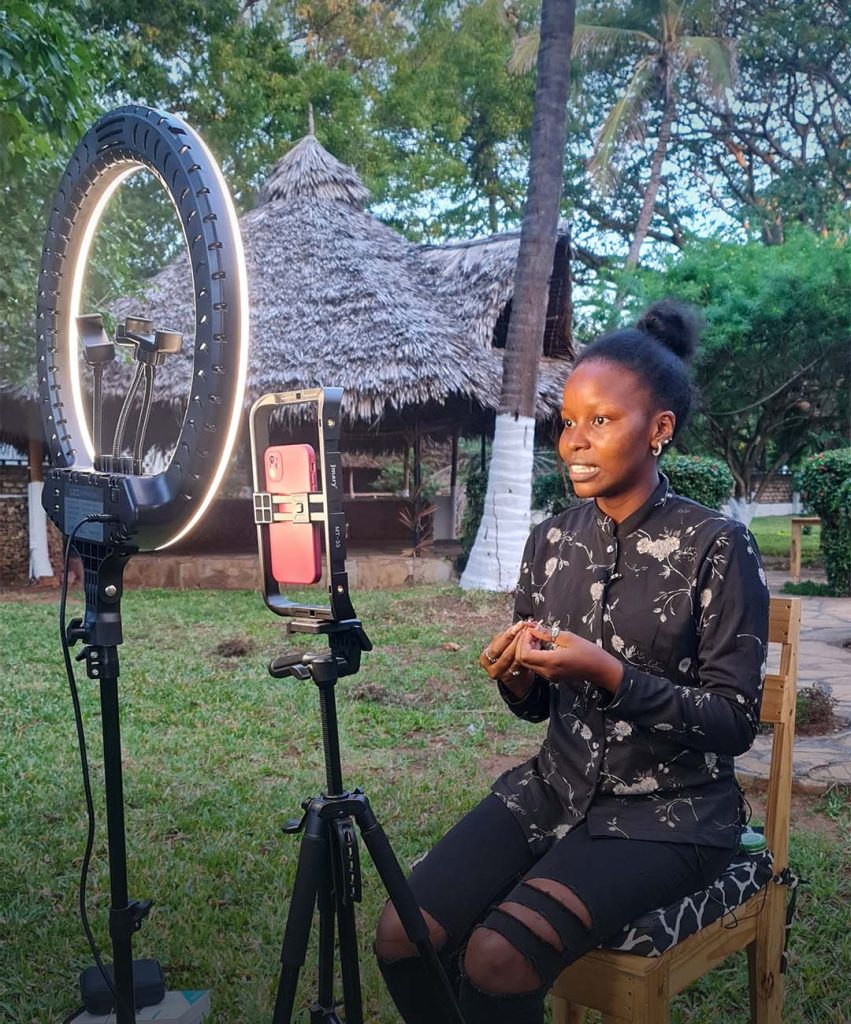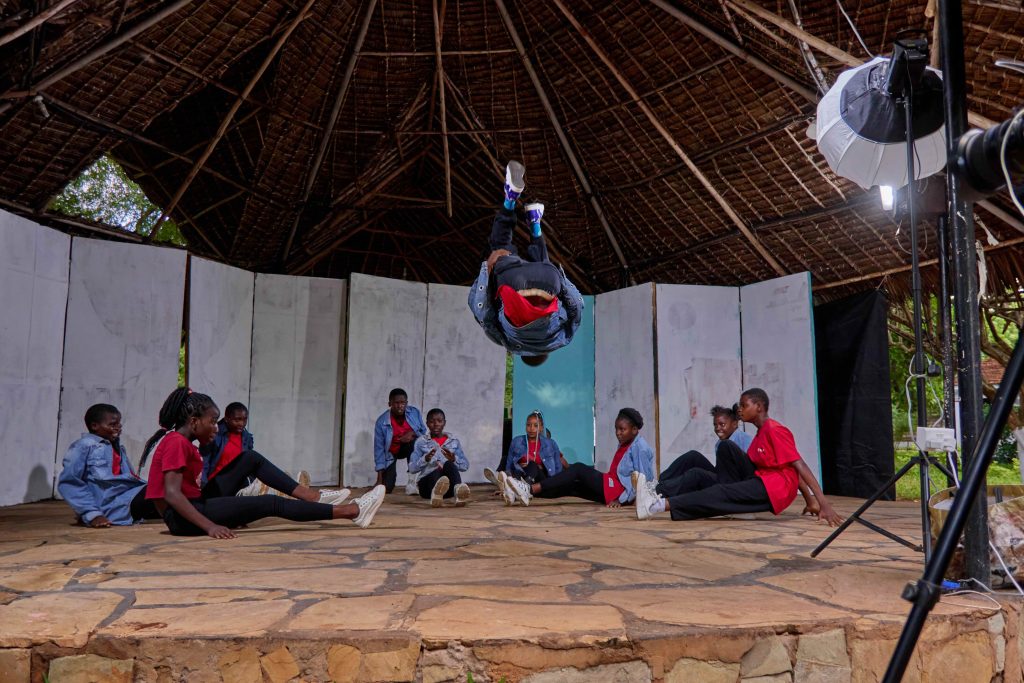It is with much joy and pride that we announce Story Za Jaba, a short docufilm that will take you through the experience of the lives of women trapped in muguka addiction. This is the first ever film about the effects of muguka on women in general, and women at the coast. In a world with scanty research on muguka and its effects on people, this film offers a good starting point as it contains insights that foster a deeper understanding of the socio-economic and health challenges faced by users. We further hope that it provides a good base for informed interventions and support.
Watch Story za Jaba HERE.
Story Za Jaba is the brainchild of Zeinab Zahor, the community manager of Maono Space, a melting pot of changemakers and creatives here in Malindi. It is the first production in a series called Maoni by Maono, where she shall be telling different stories of women in her community with the aim of shedding light to the issues they face and giving them a platform to use their voice.
The Inspiration.
She was inspired to do this because she has first hand experience of how difficult it is to be a girl growing up in Malindi. At just 13 years old, she was nearly married off to a rich man who was a family friend. It did not matter that she was in school, or that she had big dreams of her own. By cultural standards, a girl is ready to be married off soon after she experiences her first period. READ HER STORY HERE
This tough reality persists even today! It was already painful that her dreams were being sacrificed, but it was even more hurtful when she realised they were going to use the proceeds on indulgences such as muguka! By doing Story Za Jaba, Zeinab was seeking answers. ‘What is with this muguka that is causing people to sacrifice everything for it?’
The Execution.
When Zeinab came to us with the idea, we immediately jumped on it! We helped her plan and execute the production, including scripting, designing the interview questions, training on how to interview and camera work. We also supported her in post production: piecing the story together and editing the final video. Additionally, we helped her to market it, so that as many people as possible saw it. This included editing trailers and teasers, creating film posters, mobilising watch parties in different locations, mobilising influencers to share the video and even paid advertising. Essentially, we took the project as though it was our own and ran with it, all while taking Zeinab through the journey so that she sees and learns what it takes to make a production come from idea to final products with views.
Why We Tell Stories.
Over the last two years, we have inspired and supported young people to express themselves and tell stories of their communities. We inspired Sophia to open her own tiktok where she creates content about her life (she now has 8.3k followers) and Christine Wa Ndege who shares aviation/cabin crew content (she now has 36k followers). We have supported the photographers and videographers from Malindi to do various projects that highlight life in Malindi, including a photo series coming out this week about the typical life of a girl in Kilifi County. In addition, we have supported several community based organisations to tell stories of their work, including Maono Space, One Million Trees for Kilifi and Mijikenda Cultural Institute.
We do this work because we believe that everyone, regardless of who they are or where they come from, holds power to shape society. Before action, people have ideas, thoughts or concerns, which they use their voices to express.
Allowing individuals (especially underrepresented people) to tell their own stories is an act of empowerment. They speak for themselves. It recognises their dignity, giving them control over how their narratives are shared and understood. When they accept to speak out about an issue, power shifts to them – from victimhood to heroes ready to use their voices to influence change. When we were doing Story Za Jaba, a lot of women did not want to speak about it fearing shame and discrimination. In fact, as you shall see in the video, many of them requested that we blur their faces and distort their voices. Imagine if everyone we asked to interview refused, would such unprecedented revelations come out? Would we know how tragically muguka is affecting our society, especially girls and women? It is now because of the brevity of the women who agreed to share their experiences that we know muguka for what it really is, a deadly drug that should be treated with a lot more seriousness that it currently is.
When underrepresented people tell their stories, they are seen and heard. The women in Story Za Jaba have exposed the problem of muguka to the whole world, including actors who can bring change. The story will reach researchers, addiction councillors, nonprofit organisations and even the government, all who can get inspiration to do something about it. But when a community does not speak up about their issues or the value, then no one gets to hear about it and nothing happens that could potentially benefit them.
Storytelling is a powerful tool for change. Whether it’s shifting societal norms, influencing policy, or inspiring individual action, stories have the unique ability to connect deeply with human emotions, making them an indispensable asset in any change-maker’s toolkit.
Stories Should Be Raw.
When doing documentaries, we prefer not to interfere with people’s stories, so we don’t use narration. We weave the raw soundbites together. The story flows as was told, providing a fuller, more accurate picture of the issues being expressed. We understand that we cannot articulate issues better than the wearers of the issue, so we encourage even the content creators we come up with to be real – to say things as they perceive them – because in trying to sound like somebody else we lose information/nuance.
As always, we welcome you to comment on our work or reach out to us if you have anything you would like us to know. Our email is [email protected] and our social media handles are @thellesitrust.

